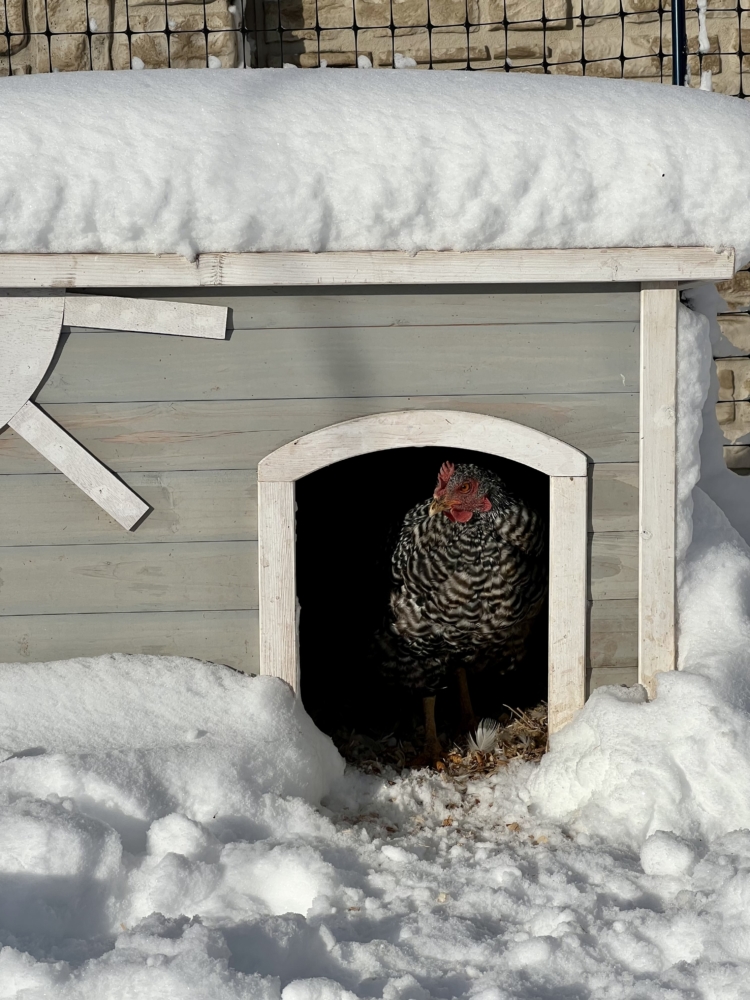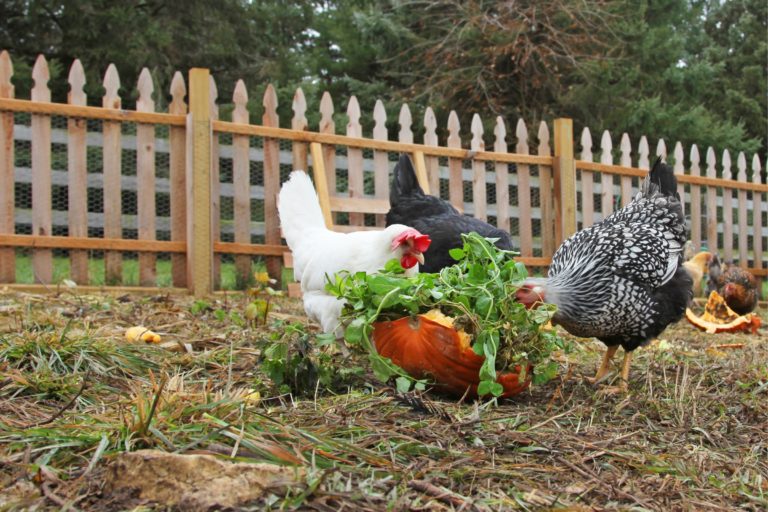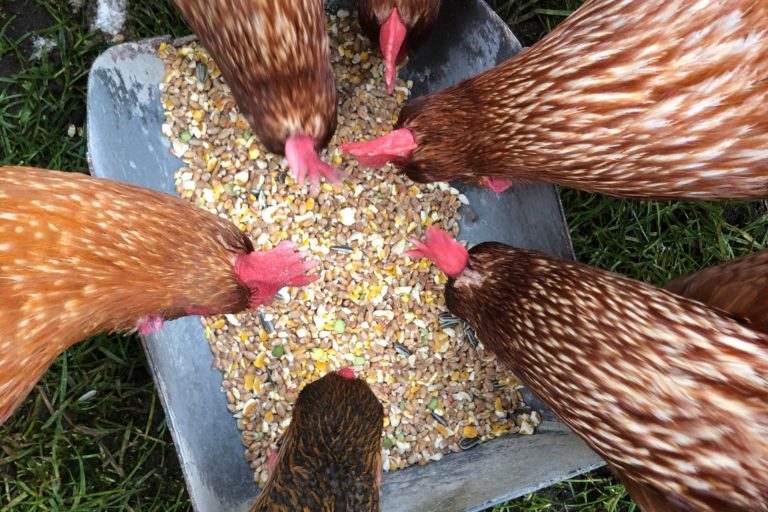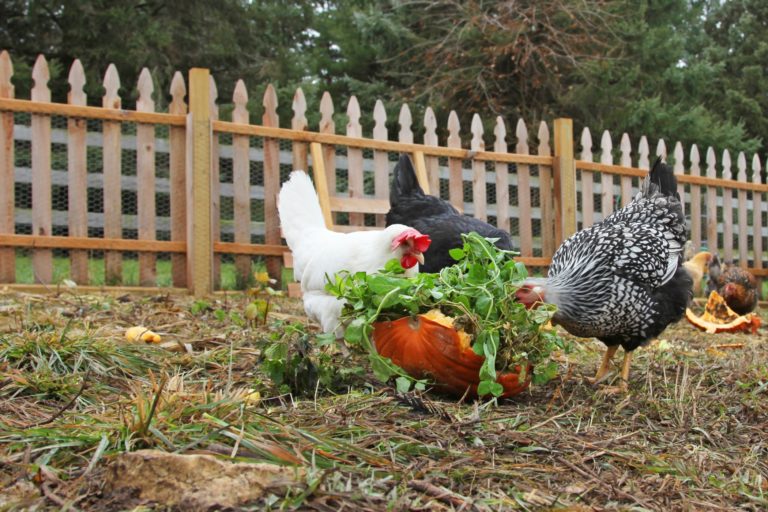A Beginner’s Guide to Raising Backyard Chickens
Any “chicken person” will tell you that raising chickens is addicting. Fresh eggs every day, natural fertilizer for your garden, and hours of backyard entertainment are just a few reasons why chicken keeping has increased in popularity in recent years.
If you’re thinking about becoming a chicken person yourself, this beginner’s guide to raising backyard chickens will give you everything you need to get started.
I’ve owned chickens for a few years and mistakes were made at first, so I’ll be able to help you avoid them.
Benefits of Raising Chickens
Raising chickens has many benefits. In addition to providing you with fresh eggs each day, chickens can also:
– Serve as natural pest control in your home and garden. They eat bugs and even mice.
– Provide you with manure for your garden
– Provide fresh meat for your family
– Make you laugh with their interesting behavior
Chicken Breeds for Beginners
There are many different chicken breeds to choose from, but not all of them are well-suited for beginners. When choosing chickens for your backyard flock, look for breeds that are known for being friendly, easy to handle, and good layers. Some beginner-friendly chicken breeds include:
- Australorp
- Orpingtons
- Rhode Island Reds
- Silkies
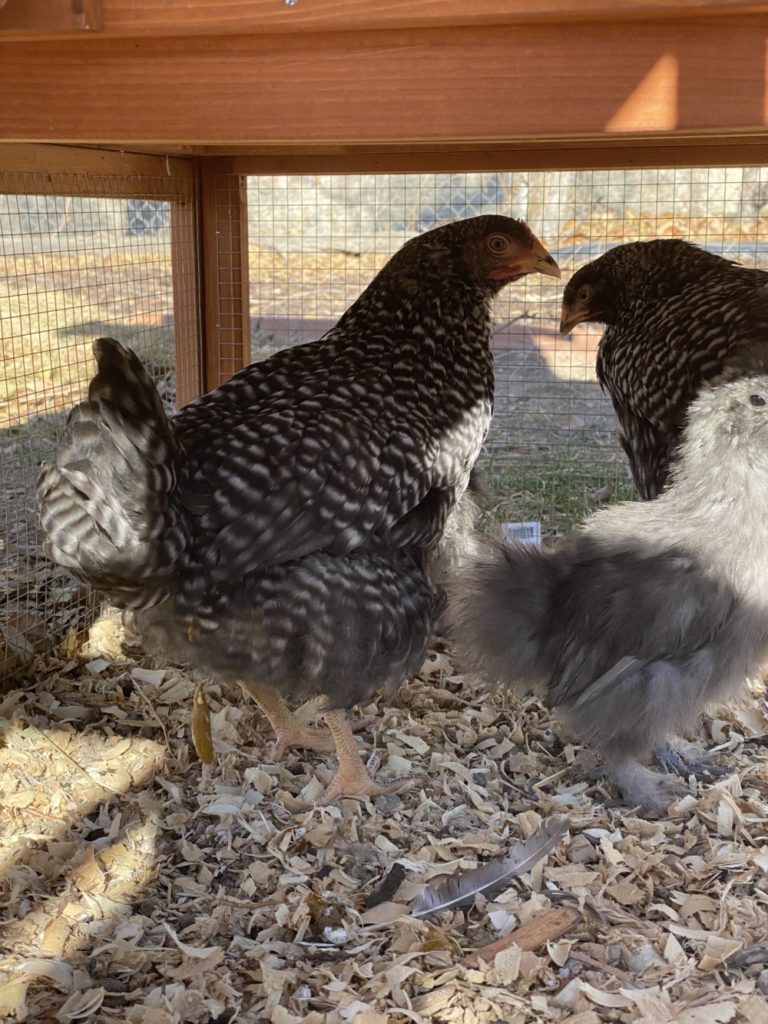
Raising Baby Chickens
Unless you’re getting “second-hand” chickens you’re most likely going to get a few days old chicks.
If you want to raise baby chickens you’ll need to purchase them from a hatchery or farm store. Chicks need to be kept warm since they can’t regulate their own body temperature.
You need to dedicate part of the room or warm garage to them for a few weeks.
Raising baby chicks is a lengthy and time-consuming process. We’ve done it twice. Compared to maintaining a chicken coop with grown chickens it’s hard work, but once you do it the rest will be a piece of cake.
Building a Chicken Coop
Your chickens will need shelter from the elements and predators. A chicken coop is typically made from wood and has a wire fence around it to keep chickens in and predators out. The coop should have:
– A place for the chickens to roost (sleep)
– A nest box for laying eggs
– An access door for you to enter
– Ventilation to keep the air fresh
– Windows to let in natural light
You can purchase a premade one or design your own chicken coop. If you decide to build your own design, make sure the coop is big enough for the number of chickens you plan to have. Chickens need about 3 square feet of space each.
I highly recommend purchasing a coop from Omlet with automatic doors. It’s more expensive than a traditional wooden coop, but it’s worth it. We made the mistake of trying to save on a coop pictured below and it fell apart quickly and was more effort to care for the chickens in it.
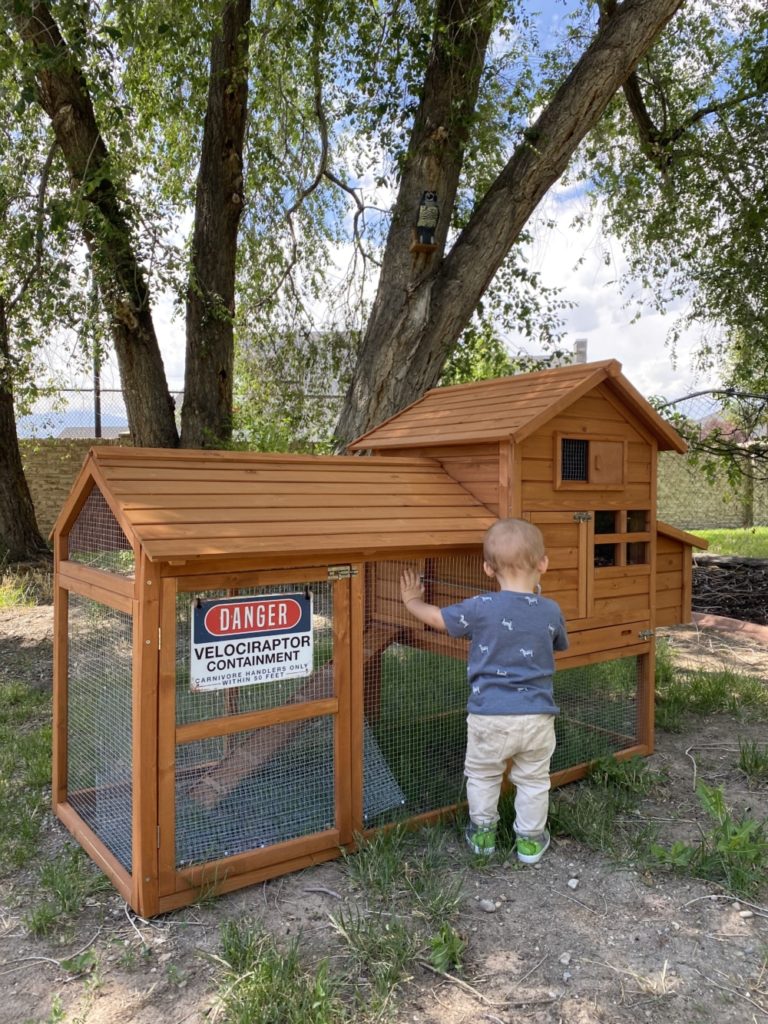
Feeding Your Chickens
Chickens are omnivores and will eat a variety of foods, including insects, vegetables, and grains. You can purchase chicken feed from your local farm store or online. We simply subscribed to Chewy’s auto-deliveries.
You can also supplement your chicken’s diet with kitchen scraps like vegetables, fruit, and bread. Just avoid feeding them anything fatty, spicy, or salty.
Water is essential for chickens and should be available at all times. A water dispenser or waterer with a drip-free design is best to prevent spills. If you live in colder climes, also consider getting a heater plate for the waterer so your chickens are inclined to drink and stay healthy.
Your Chickens’ Medical Needs
Chickens are generally hardy creatures and don’t require a lot of medical care. However, you should still be prepared to deal with common chicken ailments like:
– Bumblefoot: an infection that causes swelling and inflammation in the foot
– Coccidiosis: a parasitic infection that can cause diarrhea
– respiratory infections
If you think your chicken is sick, contact a veterinarian who specializes in poultry. They will be able to diagnose and treat your chicken.
Collecting Eggs
One of the main reasons people choose to raise chickens is for the fresh eggs. Chickens typically lay one egg a day, but this can vary depending on the breed and time of year – some breeds will rarely lay anything during the winter months.
To collect eggs, simply open the door to the chicken coop and look for eggs in the nest boxes. Be careful not to disturb the chickens too much or they may stop laying eggs.
You also need to make sure that none of your chickens start brooding (=sitting on eggs). If they start brooding then they won’t be laying eggs until they stop. There are various sticks to stop a chicken from brooding though.
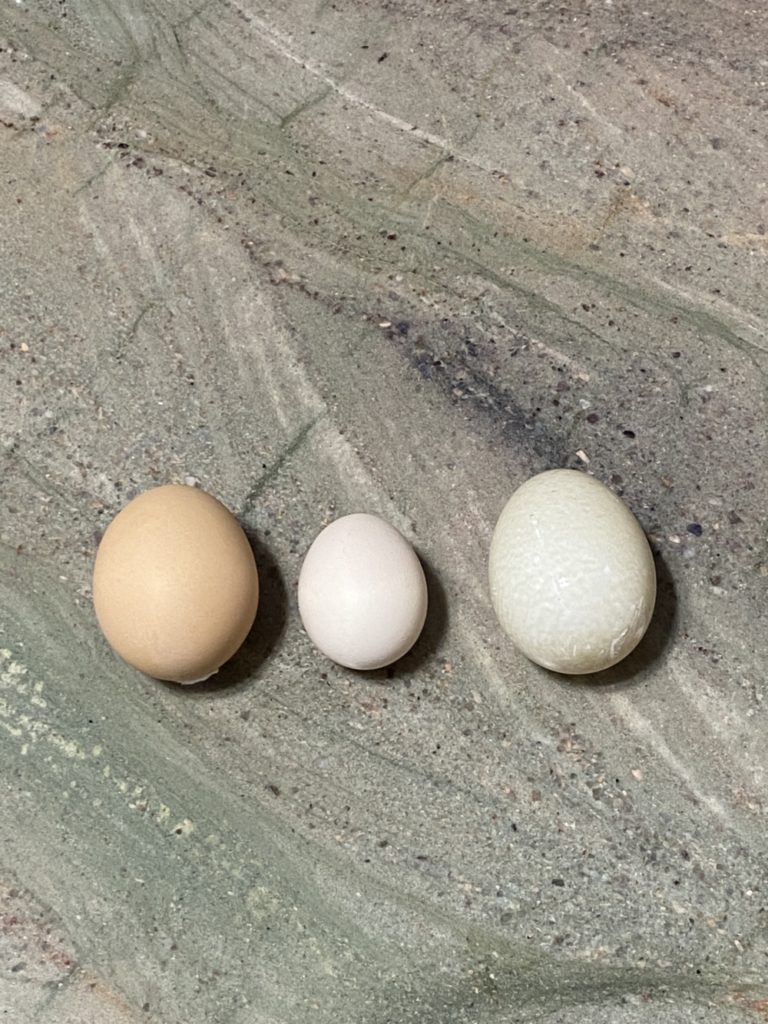
Storing Eggs
Fresh eggs can be stored right on your countertop if they still have the bloom, or protective coating, on them. If the bloom has been washed off, store the eggs in the refrigerator.
If you have more eggs than you can eat within a week, store them in the fridge. Eggs can be stored in the fridge for up to 2 weeks.
You can preserve your farm-fresh eggs for longer in a few different ways.
Eggs can also be frozen. First, wash the eggs and remove the air cells by pricking them with a needle. Then store them in an airtight container in the freezer for up to 12 months.
Making Money from Backyard Chickens
If you want to make some extra money from your backyard chickens, there are a few options. The most common is selling eggs.
You can also sell live chickens or chicken meat. To do this, you may need to get a license from your state or local government.
With a little effort, you can easily turn your backyard chickens into a profitable business.
Additional Info for Raising Chickens
Now that you know the basics of raising backyard chickens, there are a few additional things you should be aware of.
First, chickens can carry diseases that are harmful to humans. These diseases can be transmitted through contact with chicken manure, feathers, or even just being in close proximity to sick chickens.
It’s important to take precautions to avoid these diseases. First, don’t allow chickens in areas where people or other animals live. Second, keep the chicken coop clean and sanitary. Finally, don’t handle sick chickens without gloves and a mask.
Second, chickens are attracted to food scraps. This can be a problem if you have a compost bin or garden. To avoid attracting chickens, keep your compost bin tightly sealed and don’t leave food scraps where they can be reached by chickens.
Finally, chickens are prey animals. This means that they’re constantly on the lookout for predators. As a result, they can be easily frightened and/or killed.
To help reduce stress in your chickens, provide them with a safe place to hide, such as a chicken coop. You should also avoid handling them too much.
With a little care and attention, you can easily raise healthy and happy backyard chickens.

